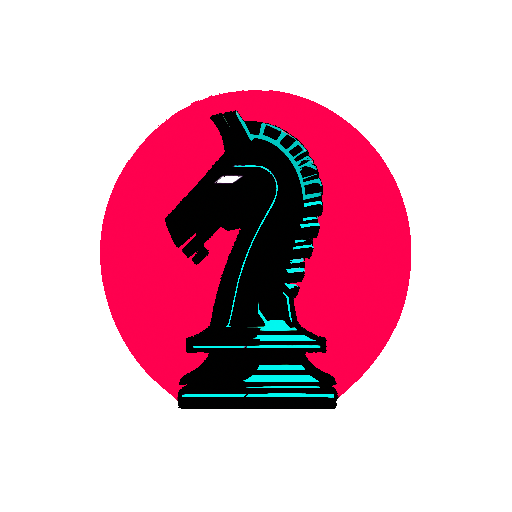~ “First came checkers. Boy that was fun. It was a splash in the kiddie pool. Then came chess and I took a dive in the ocean. I couldn’t see the bottom…”
My dad, like many dads, taught me chess. This is something I am forever grateful for. I was around 6 or 7 years old, and even from that point I loved the game. Of course I wasn’t any good. Most of my games were between beginners such as myself, my dad, and my dad’s dad. My grandpa. I received my first official chess set on Christmas Day in 1995. It was an authentic handcarved wooden chess set straight from Santa’s workshop in Mexico. This was when elves were still willing to work for pesos. What a deal. I still have the thing. It’s seen better years. But it’s now a more permanent fixture embedded in my pallet wood table.
A couple years later, in 3rd grade I joined the school chess club for a semester or so where I learned the scholars mate and the King/Rook vs King endgame. Most of my games were still just practice between all the dads and me. I did make a fellow chess friend and companion during that time though. In fact, we still have some very brief interactions (what’s up, Zach!). After that I really didn’t touch the game until about 10 years later when I was already in college. The high school chess coach actually did know about my interest in the game and constantly tried getting me to join the team.. which I would have if not for the other extracurricular activities and adults competing for my time and talents.
Anyways, I couldn’t get the game out of my head after all those years. I figured I now had a chance to get better and the time to dedicate to it. Just had to shirk the college studies and I’d be just fine. I went to the campus library and found the two books on chess I could find, one of which was titled Morphy Chess Masterpieces by Fred Reinfeld and Andrew Soltis, written in 1974. I didn’t know who Morphy was at the time and it sounded like Morpheus which reminded me of The Matrix. I thought this was cool so I picked it up. This book was written in the outdated descriptive notation which made working through the games very painful. But it blew my mind. Competely changed the way I thought about chess. From then on I had an insatiable hunger for unsound tactics. Sometimes they panned out and it was pretty.
By this point I was mostly playing my college roommate and an occasional drunken passer-by. I still remember being crushed by the infamous wandering drunken master. Eventually I found a couple local chess groups that would meet up once a week. This gave me an opportunity to practice my calculation and sharpen my tactical skills for longer games. It wasn’t enough. I required daily practice.
Fortunately, around that time (circa 2009), chess.com had just come around. I signed up early enough to snag a one-word username, and this is really where my skills developed. I was still just a beginner clocking in well under 1100 Elo. In fact, as most new users to chess.com have experienced, the first games are exceptionally brutal. You really start to understand how bad you are. I’m actually ashamed to admit that the first time someone en-pessanted me I reported them thinking the site had been hacked by this dirty cheater. Staff was kind enough to explain to me what a dumbass I was.
I mostly played longer “rapid” games with 15 minute time controls to get better, but eventually moved on to the more exciting blitz and bullet time controls. These short time controls are great for committing openings to muscle memory and forcing you to calculate quickly whereas the longer time controls give you opportunities to get creative with your planning, be precise, meditate, and work on that meta congnition that is so rarely spoken about in chess.
As a side note I have to point out that chess.com used to be more fun before they decided it needed to be a safe space for everyone. I suppose it was for the best, but back in the day you could talk an unbelievable amount of shit in the chat with zero accountability. I’m still convinced chess.com needs to add an adults-only section where you’re free to engage in unmitigated, unhinged banter with your opponents as long as you’re a consenting adult. My roommate and I used to engage in a different version of “hand and brain” where I would control the mouse and the moves while he controlled the keyboard and the insults. This really got in my opponents’ heads. Chess.com also didn’t have any safeguards for cheating back in the day even though at the same time chess engines were widely available and fairly easy to obtain. I had Shredder on my laptop and iphone. He was a good partner in crime on occasion and I probably have a few undeserved victories in the archives. I can’t say I’m proud of it, but hey, kids do kid stuff. You eventually grow up and realize how stupid cheating is. I could probably write a whole other article on that. Granted, at the time the stakes were low and all you had to gain were a few Elo points and an inflated ego while silencing (or sometimes engraging) a would-be shit talker. I don’t even know if chess.com had tournaments with monetary prizes at the time. I’ll say it once: cheating is stupid but it’s great for content.
I don’t engage much in tournament play myself, and never really have. I guess you might consider me someone who doesn’t take the game that serious, but just serious enough to be better than the majority of my opponents online and over the board (OTB). I’ve never held much stake in the game as far as a career choice. Very few people can make a liveable wage off of chess and I can’t see myself being one of them, at least as far as playing professionally.
Fast forward to today, and I am now proud to be somewhat of a founding member at our unofficial chess community in Southwestern Arizona. It’s come a long way in the past few years since I started attending and we’ve now begun to attract some of the city’s most talented chessers, titled masters included. I play online regularly and have multiple accounts across chess.com and lichess.org that serve various purposes. But I still have my first ever chess.com account with games totalling in the tens of thousands in addition to my lichess.org account containing an additional 3 thousand games or so.
Playing chess online is really, in my opinion, the best way to improve your game and have fun in the process… up to a point. Eventually one needs to get serious if they want to improve and that’s where books, databases, engines, and rote training come in, online as well as OTB. There are a ton of resources, free and non-free, to help you improve your game. I’m hoping that my personal chess blog will contribute in some way to your improvement of the game if not just provide some small amount of entertainment. With that, please enjoy ♟
- ChessTok 👑
P.S., if you have any questions, comments, or just want to subscribe to my regular newsletter click on the CE5 button in the footer.

